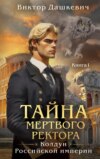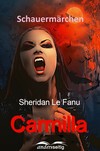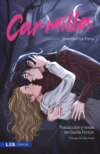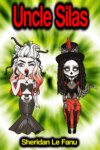Umfang 180 seiten
The Haunted Baronet
Über das Buch
The Haunted Baronet – Sheridan Le Fanu – The Haunted Baronet Sheridan Le Fanu – The Haunted Baronet is a novella published in 1871 in the Chronicles of Golden Friars, a collection of short stories set in the imaginary English village of Golden Friars.
Joseph Thomas Sheridan Le Fanu ( 28 August 1814 – 7 February 1873) was an Irish writer of Gothic tales, mystery novels, and horror fiction. He was a leading ghost story writer of his time, central to the development of the genre in the Victorian era. M. R. James described Le Fanu as «absolutely in the first rank as a writer of ghost stories». Three of his best-known works are the locked-room mystery Uncle Silas, the lesbian vampire novella Carmilla, and the historical novel The House by the Churchyard.
Sheridan Le Fanu was born at 45 Lower Dominick Street, Dublin, into a literary family of Huguenot, Irish and English descent. He had an elder sister, Catherine Frances, and a younger brother, William Richard. His parents were Thomas Philip Le Fanu and Emma Lucretia Dobbin. Both his grandmother Alicia Sheridan Le Fanu and his great-uncle Richard Brinsley Sheridan were playwrights (his niece Rhoda Broughton would become a successful novelist), and his mother was also a writer, producing a biography of Charles Orpen. Within a year of his birth, his family moved to the Royal Hibernian Military School in the Phoenix Park, where his father, a Church of Ireland clergyman, was appointed to the chaplaincy of the establishment. The Phoenix Park and the adjacent village and parish church of Chapelizod would appear in Le Fanu's later stories.
In 1826 the family moved to Abington, County Limerick, where Le Fanu's father Thomas took up his second rectorship in Ireland. Although he had a tutor, who, according to his brother William, taught them nothing and was finally dismissed in disgrace, Le Fanu used his father's library to educate himself. By the age of fifteen, Joseph was writing poetry which he shared with his mother and siblings but never with his father. His father was a stern Protestant churchman and raised his family in an almost Calvinist tradition.




















